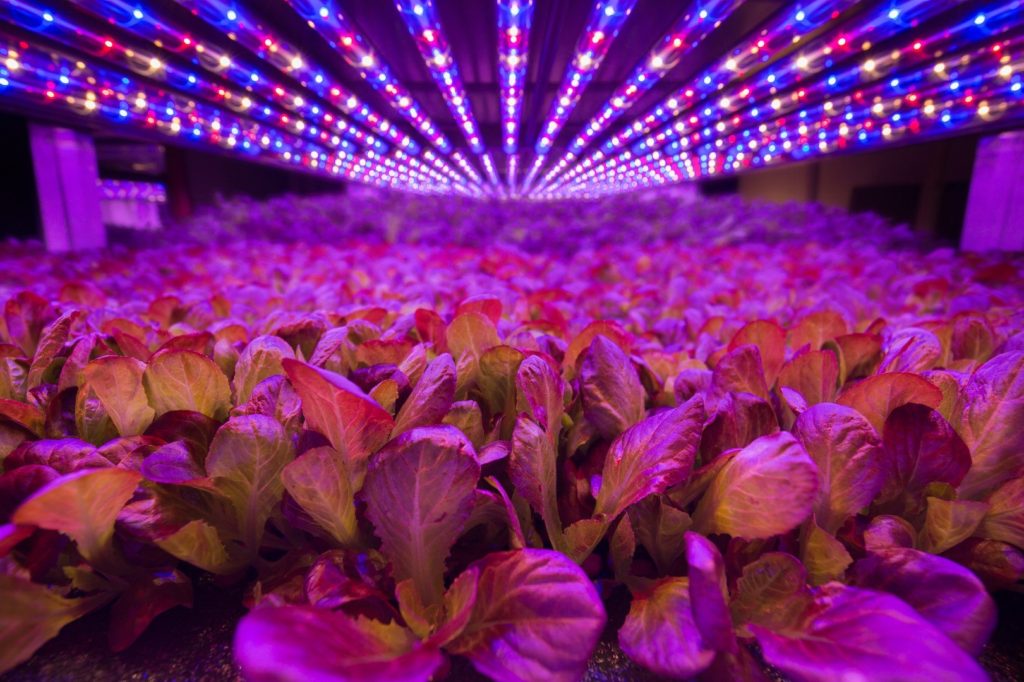New Jersey has the second-highest urban population percentage in the U.S with 94.7% of residents living in an urban area. Despite being the Garden State, New Jersey’s mostly urban environment limits access for local farm-to-table produce.
However, accessibility is increasing with the rise of vertical farming, the practice of growing crops in vertical stacked layers or columns. This time of farming is becoming popular particularly within the realm of shipping container farm environments and other alternative forms of farming.
This modern farming practice is beginning to take root in the U.S., including Monmouth County. Compared to conventional farming, vertical farming offers benefits like defying harsh winter weather. Commercial growers taking their produce indoors often utilize products like those found on the Agron website, such as fluence, to improve their growing methods.
“The vertical farming allows us to supply customers with fresh, organic, nutrient-dense products all year-round,” said Theresa Reid, owner of Beyond Organic Growers in Freehold.
BENEFITS OF VERTICAL FARMING
Vertical farm produce is grown in a controlled environment creating the ideal growing conditions.
“We can grow baby leafy greens in 12 to 16 days that would take 30 to 45 days out in the field because we are providing the perfect environment for our plants,” said Marc Oshima, co-founder and chief marketing officer of AeroFarms in Newark.
These indoor environments also help reduce the numbers of pests, meaning farmers are more able to produce quality organic food. Though there are organic herbicides available for farmers in the event that pests do infiltrate a vertical farming operation.
Overall, Jersey farmers now have the option to use fewer resources in an overpopulated state.
“Reducing the carbon footprint, transportation, and 90% less water and land in a densely populated area gives us a greater supply of produce than a conventional farm,” Theresa said.
Conventional agriculture uses an immense amount of land, water, and contributes to 70% of water contamination.
“We’re able to grow with 95% less water than traditional field farming, 40% less fertilizer, and do not have any harmful runoff that can lead to dead zones,” says Marc.
MEETING THE GROWING DEMAND
Producing enough food for a world population that could reach 10 billion by 2050 is one of humanity’s greatest challenges. Fortunately, vertical farming could become the solution for supplying urban residents with fresh and local produce. In order to meet demand, some farmers are trying to speed up the time that it takes for their plants to grow. This can be done by using some chemicals, however, these chemicals need to be stored carefully as some of them can be dangerous. If an accident does occur with chemicals and workers, it’s important for the employer to take appropriate steps following the accident. Perhaps some people would like to learn more about that here. Hopefully, this will prevent any accidents from occurring whilst farmers try and grow their produce.
“This past year, we grew over 45 million plants at our commercial farm serving the community and selling to supermarkets, food service, restaurants, schools, and through our own farm stand,” Marc said.
Identifying with healthy living and lifestyle choices is what fuels the passion when there’s an immense amount of labor needed to maintain the vertical farms.
“It’s our passion. Eating clean, being healthy, and feeling great both mentally and physically. Getting people healthy-those who are sick-and recognizing the need to change the way they eat,” Theresa said.
The Center for Disease Control and Prevention reports 9 out of 10 Americans fail to eat enough fruits and vegetables daily.
AeroFarms is connecting with Newark’s youth to start healthy living at a younger age. An AeroFarms working farm is located in a Newark school. The students identify first-hand how their food is grown and the importance of eating healthy.
“Our farm is right in their dining hall, offering the shortest farm-to-table experience around,” Marc said.
The superb growing conditions within a vertical farm bring out the complex flavor profile of the produce.
“Fresh, flavorful, crispy, juicy, peppery, citrus. You will not be able to eat from the store again,” Theresa says.
It’s easy to visit and connect with these local vertical farms. Beyond Organic Growers is hosting a farm-to-table dinner Friday, Feb. 3. Plus, they’re open to the public for produce purchase Monday through Saturday at their 89 Howell Road, Freehold location.
AeroFarms hosts a weekly farm stand on Wednesdays, 3 pm to 6 pm at the commercial farm location on 400 Ferry Street in Newark.
Whether it’s an innovation like vertical farming or emerging social trends, the most fascinating ideas will be on display and discussed at TEDxNavesink IDENTITY on May 20 in Asbury Park. Get your tickets today.



